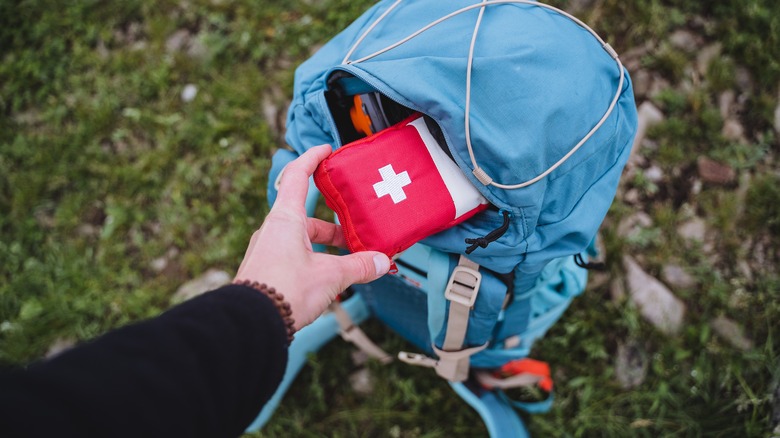Travel Guides Outdoor Adventures Camping
Camila Pérez B
Planning a camping adventure is a great way to get outside and in touch with nature. From serene lakes to crackling campfires, marshmallow roasts to stargazing, and trekking trails to bird-watching, nature enthusiasts will be quick to tell you that camping is all about the joy of simple pleasures.
However, even with all the relaxation and fun, the outdoors can also come with its own set of challenges. One such challenge — seemingly small, yet painfully annoying — is when a pesky splinter manages to wedge its way into your skin. And, to make matters worse, let’s say your emergency tweezers are nowhere to be found. Chaos, fear, and the throbbing sensation in your thumb rise — what are you supposed to do now?
Well, believe it or not, duct tape can do the trick. If you ever find yourself in this pinch, simply cut off a small piece of duct tape, stick it on the area where the splinter is, and then slowly peel the tape off. Known for being extra sticky and strong, this common household item can help you remove the splinter in a flash, allowing you to go back to your regular camping activities in no time.
Dealing with splinters in the outdoors

Casarsaguru/Getty Images
As most outdoor lovers will probably know, splinters can happen when you least expect them. From collecting firewood to securing your tent, or even taking a dip in a nearby lake, these little slivers of sharp wood, glass, or even plastic can embed themselves into bare skin and wreak plenty of havoc.
After all, some types of splinters — if not promptly addressed and removed — can lead to swelling, redness, and potential infection. This is especially true for wood or other types of organic splinters, as there’s an added risk of introducing bacteria and fungi into the skin, further increasing the need for quick and safe extraction.
This is where the versatility of duct tape comes into play. Unlike tweezers, which ideally need to be sanitized in boiling water or alcohol before use, a fresh strip of duct tape is typically clean, having been rolled up and shielded from external contaminants. It’s also easy to handle, which helps ensure minimal contact with other surfaces as you’re using it, reducing the risk of introducing additional pathogens where you don’t want them.
Duct tape is the unsung hero of camping

Apomares/Getty Images
Beyond being an unconventional splinter-removal tool, duct tape has lots of other uses if you’re ever adventuring on your own, with friends, or even camping with your dog. For instance, if you ever find a minor tear in your tent, the adhesive strength of duct tape can help seal it to ensure you’re protected from the elements — even when unexpected bad weather strikes. Moreover, duct tape can also come in handy when repairing common camping equipment such as folding chairs, lantern handles, and tent poles, or even waterproofing tools like flashlights.
When it comes to eating and cooking while camping, duct tape also shines for its versatility. From makeshift spoons to sealing bags of unfinished food so as not to attract unwanted wildlife, it can work wonders and make your outdoor life a lot easier. One final surprising use? Duct tape can even serve as an impromptu fly trap! If you’re being bothered by pesky flies, simply stretch out a piece of duct tape and hang it in the area. The flies will get stuck to the tape’s sticky surface, giving you some respite.
All these different duct tape camping hacks highlight the conclusion that this humble hardware store staple deserves a spot in every camper’s backpack. So next time you’re packing your bags for a camping trip — why not bring along a roll of duct tape, too?

